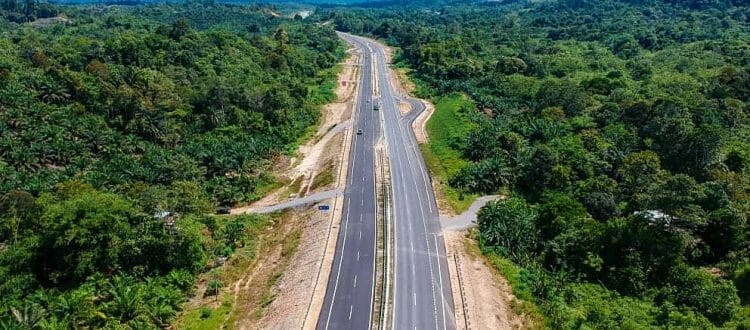
Published in Focus Malaysia, Business Today, New Straits Times & Eco-Business, image from Focus Malaysia.
WHILE it’s crucial to provide social safety nets for the vulnerable communities to cope with temporary economic shocks, Malaysia also cannot afford to lose sight of environmental sustainability due to the ongoing threat of climate change.
That being said, it is time for Malaysia to reset their development agenda by strengthening green recovery efforts while trying to save more lives and livelihoods.
Long before COVID-19, the world has been facing constraints in combating climate change. As humans continue to add heat-trapping greenhouse gas (GHG) to the atmosphere, it does not only result in rising average temperature by over 1° Celsius, but also leads to extreme weather events such as heatwaves, droughts and torrential rains, shifting wildlife populations and habitats, rising seas and floods.
Malaysia is also one of the countries facing the adverse effects of climate change. Till today, Malaysia remains vulnerable to the threat of floods, landslides, haze and water pollutions.
Up till Aug 2018, Malaysia has experienced 51 natural disaster events in the last two decades where 281 people died, over three million people were affected, and disasters caused nearly US$2 bil (RM8 bil) in damages.
The frequent water disruption in the Klang Valley and floods in several states of Malaysia such as Kuala Lumpur, Negeri Sembilan, Kelantan, Johor, Sarawak and Sabah during the COVID-19 pandemic also placed the life of the ordinary citizens in more devastating situations.
The latest survey findings from HSBC also revealed more than nine out of 10 Malaysian businesses agreed the need to re-assess or review their operations to rebuild their business on firmer environmental foundations.
However, it is relatively challenging for Malaysia to move towards green recovery as according to the Green Economy Tracker, over 90% of Malaysia’s electricity comes from fossil fuels, where Malaysia is also well-known as the world’s third largest exporter of liquefied natural gas and the second-largest exporter of palm oil.
Although Malaysia is seriously lagging behind on environmental protection, energy transition and decarbonisation, it is applaudable the current administration is committed towards green recovery – advocating sustainable development agenda in the Budget 2021 for the first time.
Following are some of the initiatives introduced by the Government under Budget 2021:
- Cooperate with the UN to establish the Malaysia-SDG Trust Fund or MySDG Trust Fund. The fund will coordinate financing from various public and private sources systematically. Thus, various parties can contribute and be involved in efforts to ensure the SDG is achieved by 2030;
- Issue first Sustainability Bond in Malaysia for environmental and social initiatives in 2021;
- The existing income tax exemption for SRI green sukuk grant is extended to all types of susuk and bonds and this exemption is extended until 2025;
- Continue the Green Technology Financing Scheme 3.0 (GTFS3.0) for two years up to 2022 which will be guaranteed by Danajamin to encourage the issuance of SRI sukuk;
- Provide RM40 mil over a period of five years to strengthen environmental quality monitoring enforcement activities including the establishment of 30 monitoring stations nationwide;
- Increase the allocation under the Economic, Infrastructure and Welfare Development-Based Grants (TAHAP) to all state governments from RM350 mil in Budget 2020 to RM400 mil. Of this amount, a total of RM70 mil is also allocated for the purpose of Ecological Fiscal Transfer Activities as an additional incentive to the state government to ensure the sustainability of the country’s biodiversity; and
- Implement mangrove tree planting programmes to preserve mangrove swamp areas and other tree species along the coast including Tanjung Piai, Johor and Kuala Sepetang, Perak;
In order to align with the latest development and future needs, the Government needs to review existing policies and legislations such as National Forestry Policy 1978 (Revised 1992), National Forestry Act 1984, National Policy on the Environment 2002 and National Water Resources Policy 2012.
Strong enforcement of rules and regulations are needed to ensure wider compliance to environmental standards.
The Government could also encourage industrial players to use renewable energy instead of fossil fuels by providing small grants – the way forward towards building a more sustainable green future.
Meanwhile, education on sustainable development has to be implemented in schools, institutions of higher education and teacher training centres to promote a better understanding of environmental issues towards inculcating sustainable lifestyle.
Moreover, the Government needs to support sustainable infrastructure and reimagine sustainable cities that are fit-for-purpose in the post-COVID-19 world. These include optimising demand-side management (DSM) for energy, encouraging low-carbon mobility and promoting the construction of green buildings.
By adopting sustainable consumption and production concept in expanding green market and better waste management towards circular economy, it would reduce the GHG emissions.
By restoring the balance between people and planet, more green and decent jobs can be created; ecotourism and green transport systems can be formed and supply chains for green products can be generated in Malaysia.
Amanda Yeo is Research Analyst at EMIR Research, an independent think tank focused on strategic policy recommendations based on rigorous research.

